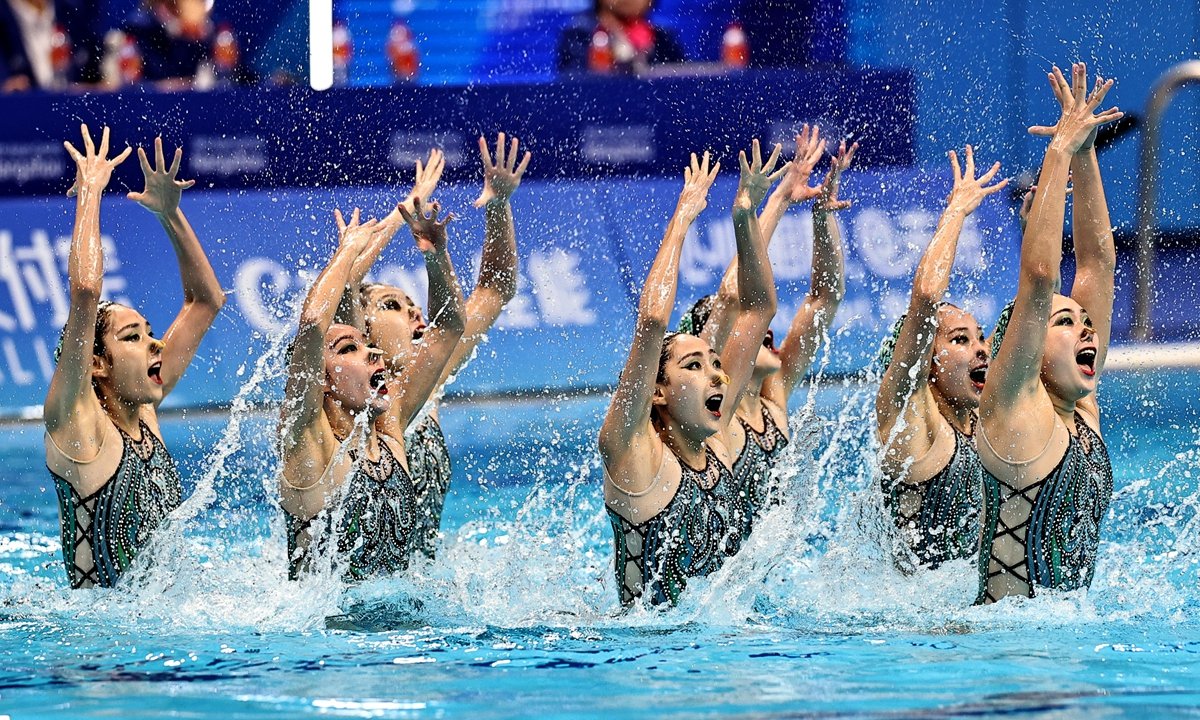The Hangzhou Asian Games concluded on a high note, with China achieving remarkable success in artistic swimming, including a groundbreaking moment in the sport’s history with male participants making their debut. China’s prowess in artistic swimming helped them secure a record-breaking 201 gold medals, topping the overall medal tally.
Host nation China clinched an impressive total of 383 medals, consisting of 201 golds, 111 silvers, and 71 bronzes. Among their achievements in artistic swimming, China dominated both the duet and team events.
In the duet category, twin sisters Wang Qianyi and Wang Liuyi dazzled the audience with their jungle-themed performance, which showcased technical excellence and intricate routines. Their remarkable performances earned them a combined score of 526.8620, comfortably surpassing the silver medalists from Japan, Mashiro Yasunaga and Moe Higa, who scored 489.4288, and the bronze medalists from Kazakhstan, Arina Pushkina and Yasmin Tuyakova, with a total score of 418.6987. China’s victory in the duet event marked their fifth consecutive gold in this category at the Asian Games.
In the team event, China continued their dominance with an impressive score of 868.9676, securing the gold medal. Japan secured the silver with a score of 831.2535, while Kazakhstan took the bronze with a score of 663.7417. These victories not only added to China’s medal tally but also earned them a qualification quota spot for the team event at the Paris 2024 Olympic Games, as well as the duet event.
Swimmer Feng Yu expressed joy at winning the gold medal and securing a spot at the Paris Games while emphasizing the team’s commitment to improvement.
A significant milestone in the Hangzhou Asian Games was the inclusion of male participants in artistic swimming, a development introduced at the 2015 FINA World Championships. For the first time in Asian Games history, male artistic swimmers were allowed to compete, with teams permitted to have up to two male members. This inclusion mirrors the upcoming 2024 Olympic Games in Paris, where male participants will also compete in artistic swimming.
Shi Haoyu of China made history by becoming the first man to win an Asian Games artistic swimming medal. During China’s team acrobatic routine, Shi’s performance stood out, complete with a sequined costume. China’s coach, Zhang Xiaohuan, highlighted that male participation adds strength and artistry to the sport, breaking gender stereotypes.
Shi echoed Zhang’s sentiments, emphasizing that male athletes contribute speed, strength, and beauty to artistic swimming. He shared his journey into the sport, having joined a local team when they were recruiting male swimmers for the 2015 World Championships in Kazan, Russia. While others dropped out, Shi persevered, becoming a trailblazer.
In Hangzhou, Shi was joined by Thailand’s Kantinan Adisaisiributr, marking the limited but significant presence of male artistic swimmers.
The Hangzhou Asian Games also showcased the evolving perceptions of gender roles in sports, with Chinese female athletes excelling while embracing their femininity through makeup, nail care, and hairstyles. This demonstrates the multifaceted nature of the new generation of Chinese women in sports.
The participation of Shi and Adisaisiributr sends a powerful message that male participation in artistic swimming is on the rise, with hope for further expansion in the future. Their presence at the Asian Games reflects the sport’s growing diversity and potential.
READ MORE:
